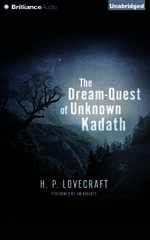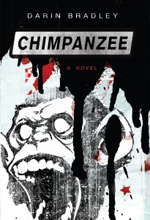
 The Peripheral
The Peripheral
By William Gibson; Narrated by Lorelei King
Publisher: Penguin Audio
Publication Date: 28 October 2014
[UNABRIDGED] – 14 hours, 5 minutes
Themes: / future / time travel / drugs / veterans / crime /
Publisher summary:
Where Flynne and her brother, Burton, live, jobs outside the drug business are rare. Fortunately, Burton has his veteran’s benefits, for neural damage he suffered from implants during his time in the USMC’s elite Haptic Recon force. Then one night Burton has to go out, but there’s a job he’s supposed to do – a job Flynne didn’t know he had. Beta-testing part of a new game, he tells her. The job seems to be simple: work a perimeter around the image of a tower building. Little buglike things turn up. He’s supposed to get in their way, edge them back. That’s all there is to it. He’s offering Flynne a good price to take over for him. What she sees, though, isn’t what Burton told her to expect. It might be a game, but it might also be murder.
Reading a new William Gibson novel is both delightful and exciting. He delights with the cool, sardonic yet imaginative visions of the present and future. He excites with his uncanny glimpses of the future, grounded in canny selections from our time.
The Peripheral offers another pleasure, that of Gibson trying something new. His recent brace of novels looked at the very near future, each following a normal linear path. His classic cyberpunk or Sprawl trilogy envisioned a medium-term future, also tending to thriller linearity.
But in The Peripheral we see a very different conceit and narrative structure. This novel relies on two timelines, one in the near-to-medium term future, and one almost a century away. At first we follow these in parallel, trying to infer connections. Then we learn that the further-along future has discovered a form of time travel – well, information exchange with the past, to be precise. The far-future signals the closer-to-us future, and has a proposition. Or two. Then more, which aren’t propositions but assassinations.
This dual-track time-travel-ish idea owes much to Gregory Benford’s 1980 novel Timescape. Other parallels appear; see spoiler section at the bottom of this post.
The future-near-to-us characters are also the more sympathetic. They focus on a young, poor Southern woman, Flynn Fisher, and her family. They live in a postwar backwater, where the economy barely exists apart from illegal drug manufacture. Flynn helps her vet brother, Burton, with an online job and witnesses what seems to be a strange murder. In the future-farther-away we see a PR flack, Wilf Netherton, working with a Russian crime family and their staff. Wilf has made an unspecified bad move, and is trying to improve his situation.
The plot ratchets up slowly and steadily to climax in a party, where multiple schemes intersect. Some, not all, is revealed, and the Fishers end up alive, very rich, and with a powerful edge on their present. Wilf somehow survives, and ends up in a relationship. This is too brisk and cursory a summary, but will do for now.
One of the pleasures of reading William Gibson is tracking his experimental words and phrases. These are concentrated projections of a possible future. Let me list some that caught my eye: klepts, artisanal AIs, battle-ready solicitors, court-certified recall, the viz, hate Kegels, autonomic bleedover, continua enthusiasts, drop bears, period trains, neo-primitivist curators, quasi-biological megavolume carbon collectors, heritage diseases, directed swarm weapons, a synthetic bullshit implant, surprise funeral, mofo-ettes, and a neurologer’s shop. One near-future treat is the “freshly printed salty caramel cronut”.
Some of today’s words mutate in these two futures. For example, poor folks don’t cook, but build drugs with some form of 3d printers. “Homes” refers not to homies or residences, but to Homeland Security. A very bad crisis happened between now and 2025 or so. People afterwards refer to it as the Jackpot.
Some of the language is simply cute. One character has her name changed slightly, and refers to it as “amputating the last letter of her name.” Another speaks of “cleaning up the afterbirth of Christmas ornaments”. The Fisher family shops at a Hefty Mart.
In a sense The Peripheral is Gibson’s gloomiest novel. Like the recent film Interstellar (my notes), this story begins in a bad situation, then gets worse. The Fishers are poor and ill (the brother has seizures, the mother seriously ailing) in a society that clearly doesn’t care for them at all. Their story reads like something from a late 19th-century Southern backwater, or like today’s worst countryside. Characters have little help for the future. What we learn about the Jackpot not only makes things horrible, but sets up a future that’s inhumane. Across all of these times looms the specter of vast economic inequality, of a society caring only for the <1%.
There is a powerful sense that the far-future is a kind of 1% taken to an extreme: a lonely elite, casually breaking off temporal worlds as a hobby, easily committing murders. Our lack of information about the world around London’s far-future elite disturbs me, the more I think of it. Conversely, the far-future world is situated in such total surveillance that they see our/Flynn’s sense of surveillance as charmingly antique.
Overall, The Peripheral offers solid future thought in an engaging narrative. Recommended.
I didn’t read this one, but listened to it on audiobook. Lorelei King was the reader and did a fine job, with the whole file running a touch over 14 hours. King does different nationalities well, which matters in the kind of multinational world Gibson loves. She reads with the right level of cool, too – not a thriller’s burning pace, but with a kind of observation acuity that I always associate with Gibson.
SPOILER SECTION
Here I reveal mysteries of the novel. Do not read any farther if you wish your brain to remain unsullied.
Ready?
Here they come:
First, more on the plot: one agency in the far-off future is manipulating the past for its own reasons, and hires the Fishers as proxies. Another far-off-future group hires others to kill the Fisher family. Ainsley Lowbeer, a London cop, or something like that, appears in the far-future, with unusual connections to the Fishers’ time. Flynn and Burton are able to interact with their far-future employers via telepresence robots, the titular peripherals. Wilf explains the Jackpot to Flynn, describing a series of interconnected, overlapping crises that killed the majority of humans:
droughts, water shortages, crop failures, honeybees gone like they almost were now, collapse of other keystone species, every last alpha predator gone, antibiotics doing even less than they already did, diseases that were never quite the one big pandemic but just big enough to be historic events in themselves…
Flynn also learns that by intervening in her time, the far-future team has effectively broken off her world from the stream of time, creating a “stub” which can’t affect their future, and avoiding neatly some classic time travel problems.
Second, how does this gloomy novel end, then? Ah, it’s a happy ending, pretty much, although we don’t learn enough about what happens in the future. We – well, the Fisher stub – get to avoid the Jackpot. Whew!
But Gibson doesn’t want us to relax. Note his comments in a Tor interview:
there may be readers who get to the end and they go, “oh, well, that’s okay, everything worked out for them!”
… But these guys had an immensely powerful—if possibly dangerously crazy—fairy godmother who altered their continuum, who has for some reason decided that she’s going to rake all of their chestnuts out of the fire, so that the world can’t go the horrible it way it went in hers. And whatever else is going to happen, that’s not going to happen for us, you know? We’re going to have to find another way. We’re not going to luck into Lowbeer.
Worse, the Fishers seem like good folks. But what will keep them (or their inheritors) from becoming klepts, with their vast power and advantages?
So this book ends up as a cautionary tale, a huge warning, and a goad to get us hauling ourselves away from the Jackpot.
Third, I mentioned earlier that The Peripheral has links to Benford’s Timescape. Benford’s future world is facing an existential crisis, due to events occurring in the past, so they reach out to communicate with the past to get them to change their ways. Gibson’s far-future has already experienced the Jackpot, but some of the survivors want to change the past to mitigate the experience. I dimly recall Benford’s future coming to an end, somehow, and the past branching off into a new, better world. This recalls Flynn’s world cutting its way into a different, hopefully non-Jackpotted world.
Posted by Bryan A.

 The Dream-quest of Unknown Kadath
The Dream-quest of Unknown Kadath The Peripheral
The Peripheral Chimpanzee
Chimpanzee Fool’s Fate (Tawny Man Trilogy #3)
Fool’s Fate (Tawny Man Trilogy #3) Tales of Terror Collection
Tales of Terror Collection Heraclix and Pomp: A Novel of the Fabricated and the Fey
Heraclix and Pomp: A Novel of the Fabricated and the Fey